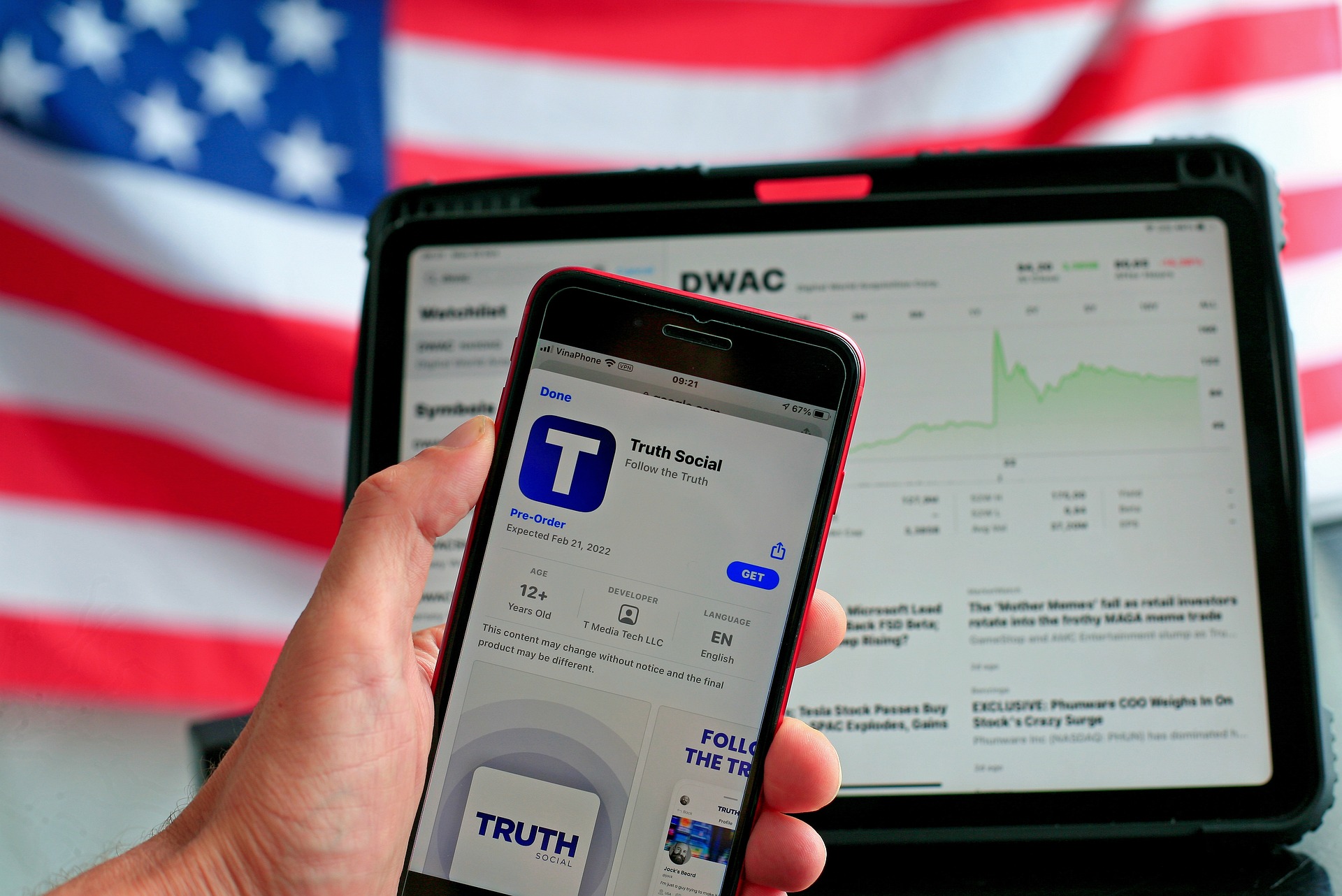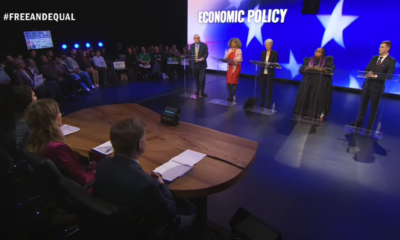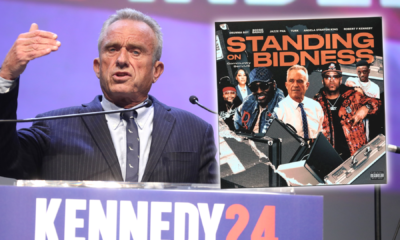Economy
Intel awarded $8.5 billion for 4 new plants

Later today, President Biden will announce the nation’s largest ever single investment into semiconductor manufacturing in our history. Intel will receive roughly $8.5 billion in subsidies from the federal government, with an additional $11 billion in loans made available. All of this is made possible by the bipartisan CHIPS Act, which passed earlier in Biden’s term.
Intel also has the option, which they are likely to take, of accepting federal tax credits worth 25% of the expense to build the new plants. This could save them an additional $25 billion over the next five years.
The move is expected to benefit the United States economy in a few important ways. Primarily, it will create jobs. This is expected to be the main focus of President Biden’s speech announcing the funding. It is estimated that the project will create around 20,000 new construction jobs. Longer term, the factories will require 10,000 workers to operate.

The investment also has the aim of making the United States supply chain less reliant on Taiwan. Taiwan currently holds 63% of the global semiconductor market, with TSMC alone making up 54% of the global total. By investing in Intel’s domestic production, the Biden administration hopes to increase the proportion of US semiconductor technology is produced at home.
Semiconductors are one of the most valuable and important parts of the modern supply chain, used for everything from cars to telephones to weapons systems. Defending United States access to the technology is critical for our national security and our way of life, which is part of why this move is so important.
The jobs being created are also targeted to help Biden’s re-election campaign. The jobs are concentrated in key swing states, including Arizona, Ohio, and Nevada.
However even this massive grant is not enough for Intel’s CEO. Patrick Gelsinger told reporters that he thinks more will be required. He said that a “CHIPS II” may need to come down the line with additional funding and support for domestic semiconductor manufacturing.
Economy
Teamsters’ leader Sean O’Brien to speak at RNC

In a surprise move, the leader of the Teamsters will be speaking at the Republican National Convention this July. The announcement was made by Former President Donald Trump on social media, welcoming the opportunity to “demonstrate to the nation’s working families they come first.”
Sean O’Brien, who won his bid to be the general president of the Teamsters in 2021, has shifted the union right in recent months. The Teamsters have traditionally supported Democrats, including as recently as 2020 when they endorsed Joe Biden. The Teamsters are one of the largest unions in the United States, boasting over 1.3 million members, and are one of the most politically influential organizations in the labor movement.
The Republican Party has been courting the working class for years now, and Trump’s MAGA movement has made inroads with many union members. However they have still traditionally been shunned by union leadership, which has voted Democratic for decades.
The biggest issue facing many working class people right now is the economy, something Trump has been keen to turn into his top issue. This was clear in the announcement of O’Brien’s speech, in which Trump said, “When I am back in the White House, the hardworking Teamsters, and all working Americans, will once again have a country they can afford to live in…”
While this speech at the RNC is certainly a sign that things are changing, it is not an all out endorsement. O’Brien has made a similar request of the Democratic Party, although it is currently unclear if they plan to accommodate him.
Economy
OpenAI sued by major newspapers

8 major United States publishers controlled by Alden Global Capital announced on Tuesday that they are launching a lawsuit against OpenAI and Microsoft over copyright infringement. Other Alden papers could eventually join the suit, as the fund controls roughly 200 newspapers across the United States.
The lawsuit claims that OpenAI illegally used content published by the papers as training materials for an artificial intelligence engine which could now divert traffic and revenue from their companies.
The list of publications featured in the lawsuit covers several major media markets around the country, and feature some of the biggest names in print journalism. The New York Daily News, The Chicago Tribune, The Orlando Sentinel, The Sun Sentinel, The San Jose Mercury News, The Denver Post, The Orange County Register and The St. Paul Pioneer Press are all involved in the lawsuit.
They join the New York Times, who also filed a lawsuit claiming billions in damages against OpenAI and Microsoft.
Other major publications, including the Financial Times and Business Insider, have instead opted to broker annual compensation from OpenAI in exchange for using their publications for training data.
Major media sources are seen as an important piece of training data for Large Language Models like the ones created by OpenAI and Microsoft. Larger and more reputable publishers, like the Times and the Tribune, can be given extra weight as sources of definitive factual information.
These lawsuits could have a large impact on the future of both artificial intelligence development in the United States. Many AI companies believe that if the publishers win these lawsuits, it will make it almost impossible to train open-source LLM’s without fear of copyright infringement. Community projects cannot afford to pay the fees demanded by publishers, and they would be denied a valuable resource in the continuing development of AI.
Economy
Trump Media shares volatile in first week

Donald Trump’s social media company Truth Social’s shares plunged to new lows on Monday, as the volatile stock continues to find its place in the market. This comes as the social media platform disclosed $58 million in losses in 2023, on a shockingly small revenue number.
Shares have rebounded slightly on Tuesday, however it is unclear if the stock will recover to its post-IPO highs. The stock has been tracked online, similar to other meme stocks such as Gamestop, AMC, and Bed Bath and Beyond. This can add extra volatility, and will likely mean the stock does not reflect the true value of the company based on its performance.
Donald Trump is not allowed to sell any of his shares, which at current prices would be worth billions of dollars, until a six month period has elapsed. During this time it is possible that the stock falls even further, especially after the financial documents that were recently published.
Trump Media & Technology Group Corp. reported revenue of just $4.1 million in 2023. Some analysts have defended this number, placing the social media site alongside the likes of Facebook and Amazon, who were also unprofitable when they first went public.
However Truth Social is also not growing at nearly the same rate as those other platforms. It was likely severely affected by Elon Musk’s purchase of X, which helped many conservatives feel more comfortable with the platform again. Donald Trump was even unbanned on the platform, although he has not returned to the social media site.
It is unclear what the future of Truth Social, or it’s parent company’s shares, will be. However it will likely play an important role in Trump’s finances, which are currently at risk due to large penalties from various trials.
-

 Campaign 20242 years ago
Campaign 20242 years agoNew poll reveals Hogan’s path to victory
-

 Campaign 20242 years ago
Campaign 20242 years agoRep. Mike Collins makes antisemitic post on X
-

 Campaign 20242 years ago
Campaign 20242 years agoThe Minor Candidate Debate Recap
-

 Opinion2 years ago
Opinion2 years agoOp-ed: Stop talking about Bidenomics
-

 Education2 years ago
Education2 years agoK-12 teachers report varied views on race, gender identity in new poll
-

 State Politics2 years ago
State Politics2 years agoThe new minimum wage in California
-

 Campaign 20242 years ago
Campaign 20242 years agoRFK Jr. campaign releases surprise rap song
-

 Campaign 20242 years ago
Campaign 20242 years agoRuben Gallego quietly leaves Progressive Caucus

